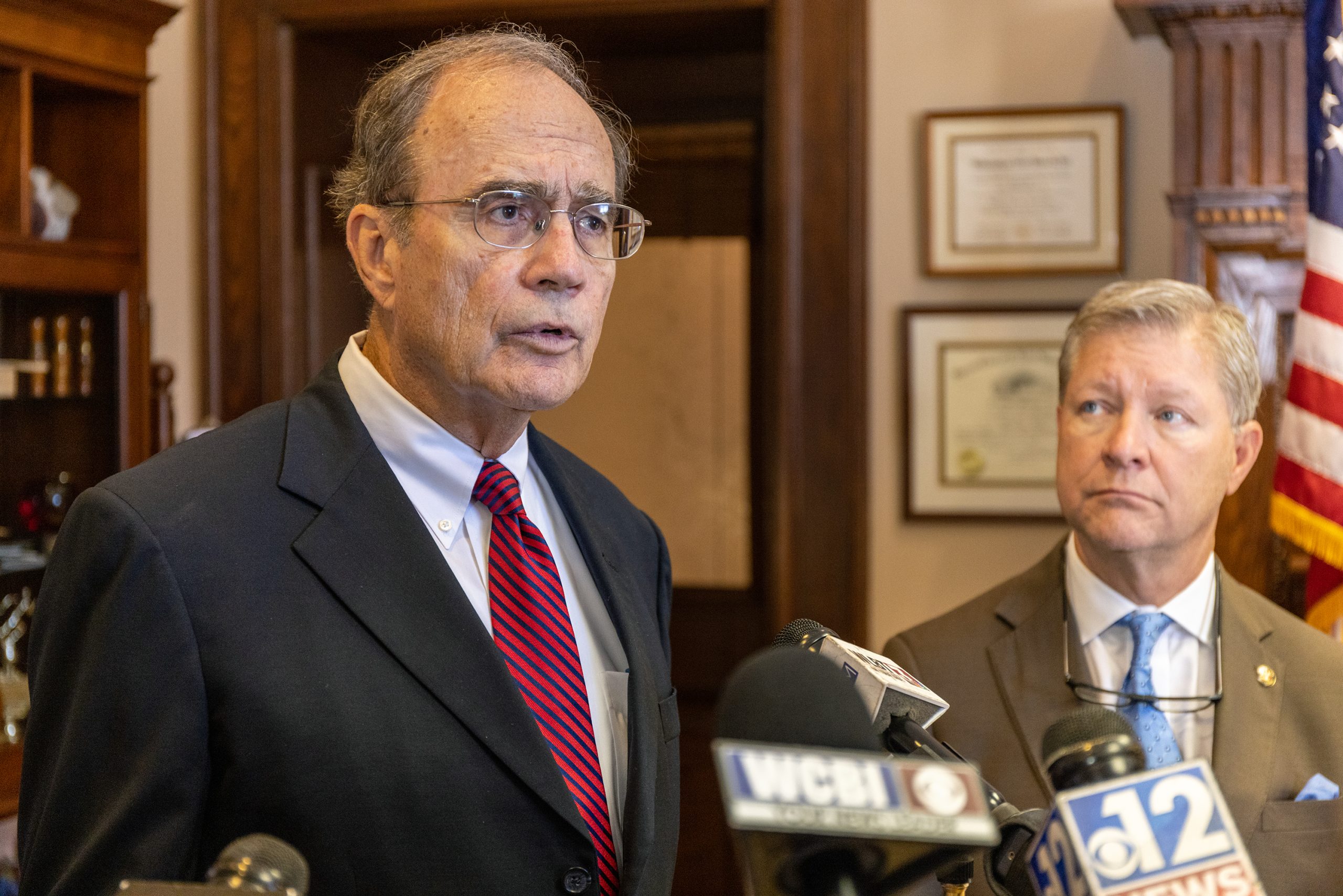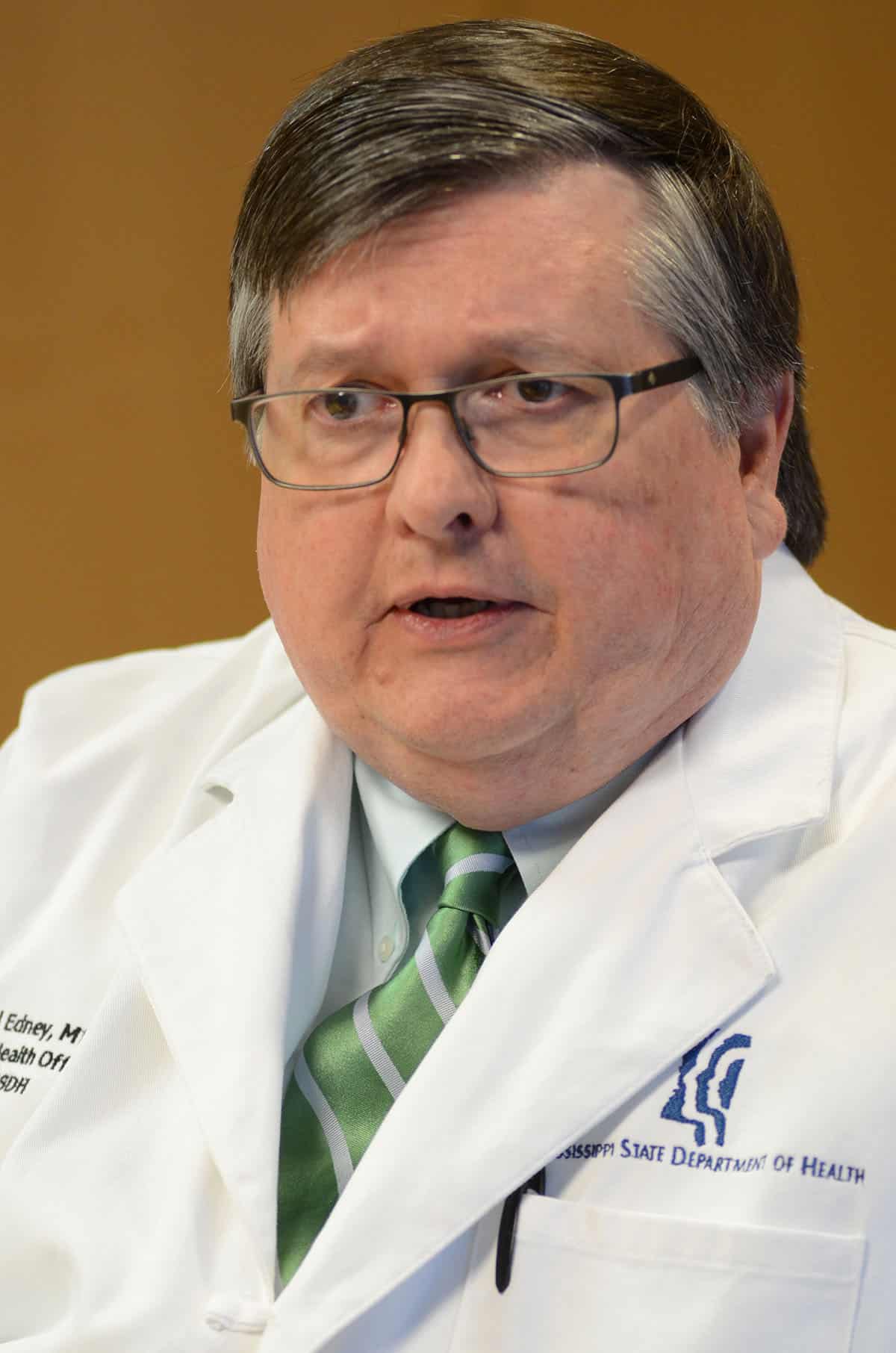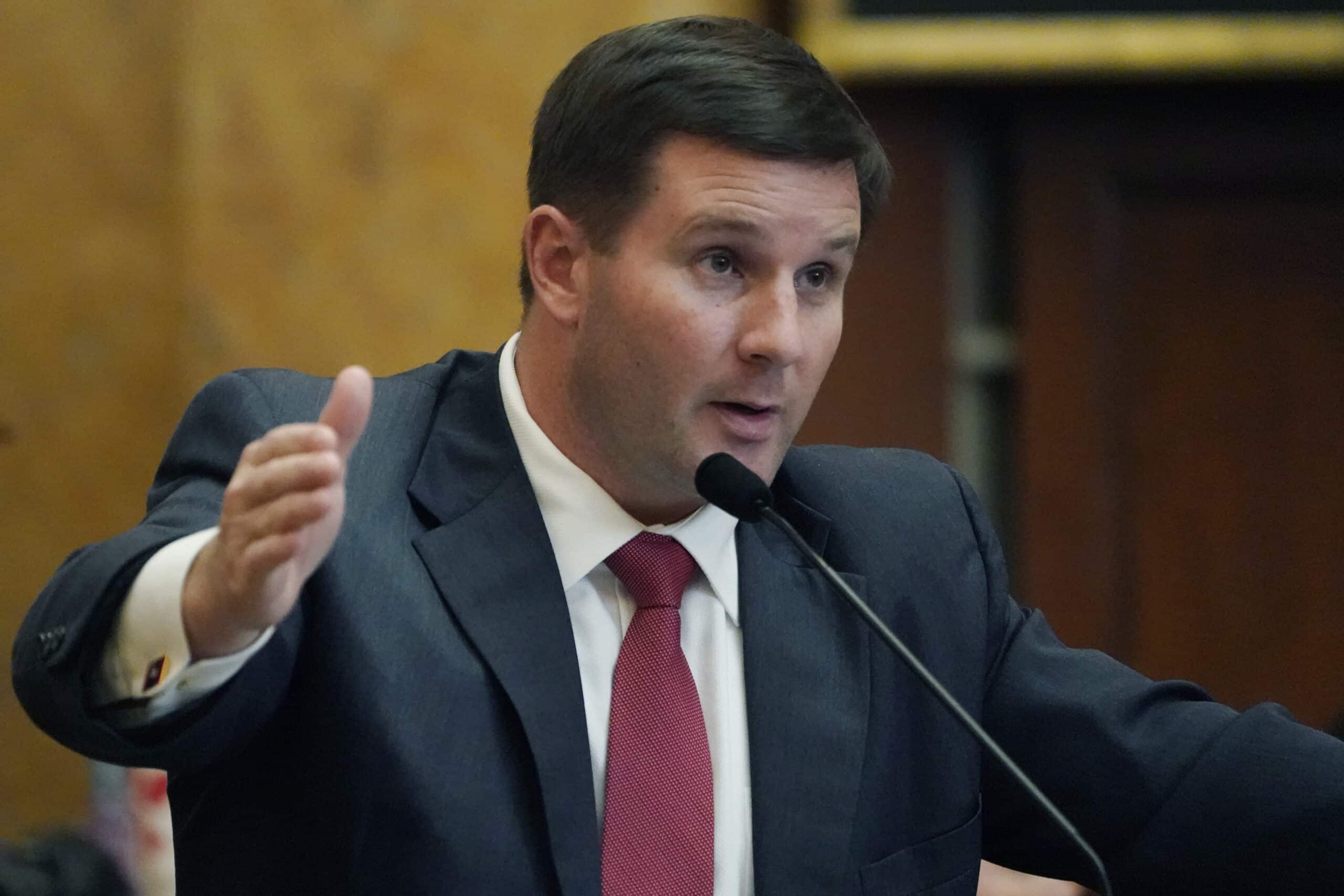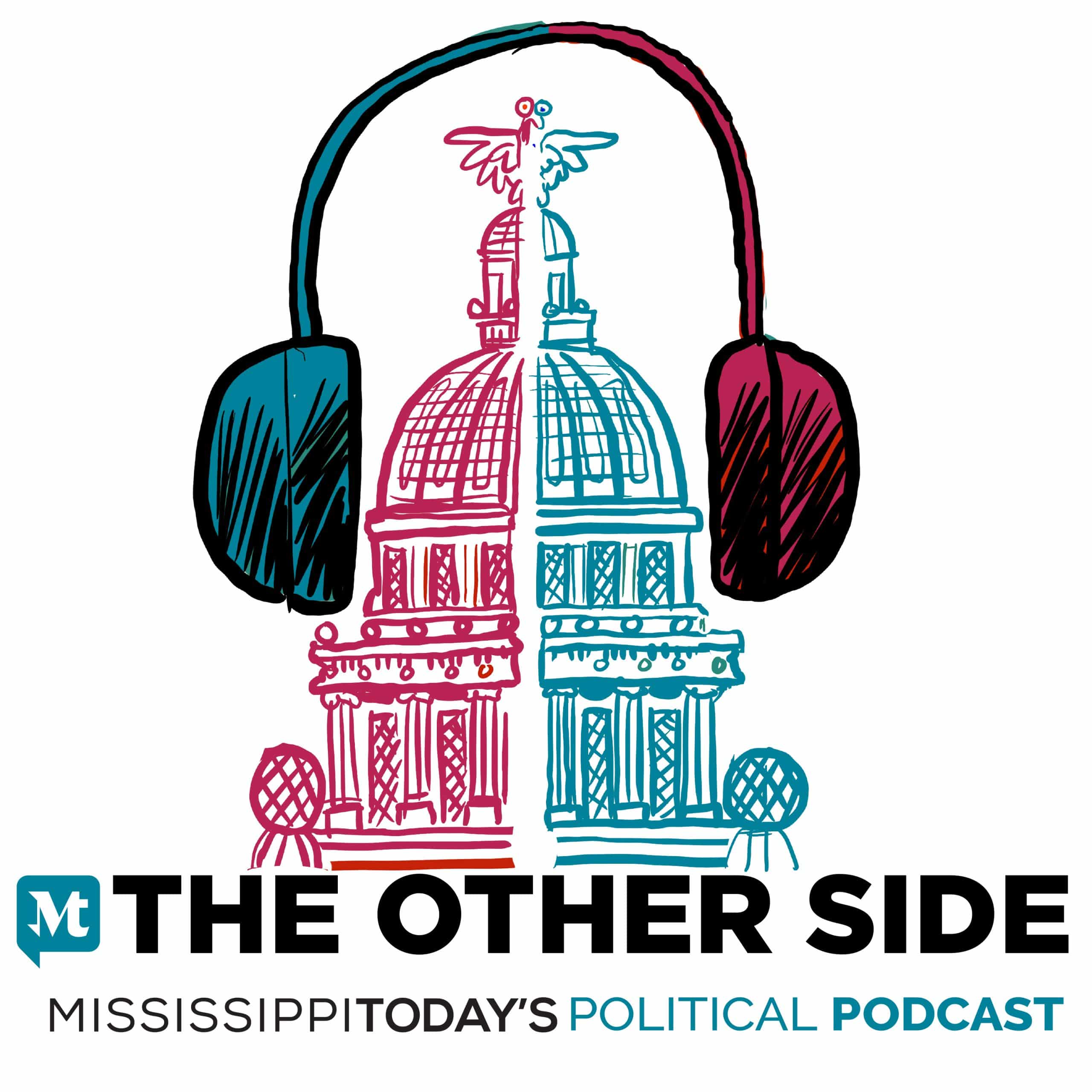Mississippi Today
The state’s troubled hospital grant program has finally awarded money to eight facilities. Many more are waiting.

Eight of 80 Mississippi hospitals that applied for money through the state's new hospital grant program have finally received those funds after months of waiting.
However, Mississippi State Health Department officials say the program's kinks are still being ironed out.
The Legislature signed the Mississippi Hospital Sustainability Grant program, which allotted state hospitals a cumulative one-time payment of $103 million, into law in April. The legislation was part of a package of bills introduced by Lt. Gov. Delbert Hosemann intended to help stem the state's ongoing health care crisis.
Nearly half of the state's rural hospitals are at risk of closure, according to one report, and urban hospitals have been cutting services and struggling with recouping losses sustained during the COVID-19 pandemic.
But the grant program has been riddled with trouble since its creation.
For months, a legislative error prevented the money from being disbursed to struggling hospitals. During the bill's creation, lawmakers chose to use federal pandemic relief money instead of state funds — it's not clear if they knew the challenges that the source of funds could present. Federal money is highly regulated, which has complicated how the grant money can be disbursed.
While the program was originally pitched as one-time grants, in actuality, hospitals must show financial loss due to the pandemic. One hospital administrator previously told Mississippi Today that made it more of a “reimbursement” program.

State Health Officer Dr. Daniel Edney has given changing, and sometimes conflicting, statements about the grant program in public meetings and interviews, which agency officials have chalked up to the “fluid” nature of the situation. Edney declined to make himself available for this story, despite multiple interview requests over the course of five weeks.
He told legislators at a tense Joint Legislative Budget Committee meeting in late September that two-thirds of hospitals had applied for the program, but only half of those hospitals were actually eligible for the money. Lawmakers — Hosemann and Rep. Trey Lamar, R-Senatobia, in particular — appeared frustrated at the health agency's handling of the program.
The state health department is being paid $700,000 to dole out the funds.
Lamar at the meeting asked for a comprehensive list detailing hospitals' eligibility for the grant money. Edney first said he had that list back at the office, but minutes later said he would get agency officials to draft a document explaining the program and send that information to committee members.
Lamar nor Hosemann ever received that list or document, they said. A records request by Mississippi Today did not yield them, either.
A few days after that meeting, Edney said in an interview with radio personality Paul Gallo that through a new workaround, he expected that 85% of hospitals would actually be eligible for the money. When Mississippi Today followed up with Edney to explain the sudden change, he offered no specifics.
“We're all still working (on) the problem,” he said.
Edney was adamant at the September Joint Legislative Budget Committee meeting that the agency needed legislative direction before they could disburse funds, and that he needed lawmakers to decide if they wanted to send out the money or wait until they fixed the program during the upcoming legislative session.
Even though legislators say they haven't received any new information, eight hospitals quietly received some money in the past few weeks.
As of Nov. 13, the only hospitals that have received money are Bolivar Medical Center, Greenwood Leflore Hospital, Baptist Memorial Hospital of Booneville, Diamond Grove Center and several Merit Health locations — River Oaks, Woman's Hospital, Central and Biloxi.
Each of those facilities got $1 million, except for Merit Health Woman's Hospital and Diamond Grove, which received $500,000 each.
Those amounts are generally less than what was initially allotted to those facilities at the time of the program's passage, except for Greenwood, which received slightly more, and Diamond Grove, which was originally expected to receive nothing.
The Greenwood hospital has been facing steep financial difficulties for months. Interim CEO Gary Marchand said the money would be enough to cover hospital payroll for two weeks.
“Every little bit will help us continue to operate in our current situation,” he said. “Although this funding is just one piece of our short-term sustainability, we are appreciative of Dr. Edney, the Mississippi State Health Department and the Legislature.”
The news that money had been disbursed came as a surprise to Lamar when reached by phone on Tuesday.

“Hopefully, this means we're making some progress,” Lamar said. “That was certainly the intent — to get financial assistance to as many hospitals that will qualify as quickly as possible. It's taken this long, but at the end of the day, if it gets where it's supposed to go, that's what we want to see happen.”
An official document provided by the agency showed that an additional 72 hospitals have applied for the money as of Nov. 14, which is about 70% of the state's total hospitals. One of those facilities is Lamar's local hospital, Highland Hills Medical Center in Senatobia.
He said the facility got a “notice of approval” from the health department this week regarding the grant money but still needed to provide more information before being determined eligible.
Now, instead of trying to estimate how many hospitals are generally eligible, health department officials would only say all hospitals can apply for the money — they just have to prove COVID losses.
However, the entire $103 million will likely not be given out — that amount serves as a cap for the maximum amount of money that can be distributed.
Hospitals can apply for the money until the end of the year, and if hospitals don't get enough help, Hosemann said he's committed to making changes to the program.
“We have asked the Department of Health to provide us with information by early December detailing how much grant money has been distributed to date and how much is expected to be distributed by the beginning of session,” he said. “Once we have that information, we will start working on revisions to the program to ensure hospitals receive what we initially intended them to receive.”
This article first appeared on Mississippi Today and is republished here under a Creative Commons license.
Mississippi Today
On this day in 1983


May 6, 1983

A federal judge sentenced Raymond Bledsoe to life for beating Black jazz saxophonist Steven Harvey to death in a Kansas City park because of his race.
A Missouri jury had acquitted Bledsoe of murder, and afterward, he reportedly bragged to his girlfriend about killing a “n—–” and getting away with it.
Harvey's family members, Alvin Sykes and the Steve Harvey Justice Campaign convinced federal authorities to pursue the case. At the time, the conviction was reportedly the fourth under the Civil Rights Act of 1968.
In 2013, federal corrections authorities denied parole to Bledsoe. To date, he remains the longest serving inmate convicted under that Civil Rights Act.
Sykes later helped bring about both the Justice Department's reopening of the Emmett Till case and the passage of the Emmett Till Unsolved Civil Rights Crime Act.
Sykes died in 2021, and his New York Times obituary read, “Though he never took a bar exam, Mr. Sykes was a brilliant legal and legislative operator whose admirers included City Council members, politicians and U.S. attorneys general from both parties. … He led a monk's life in the name of social justice. He rarely held a job, wore second hand clothing and lacked a permanent address for long stretches of time, staying with friends instead and living off donations and, later, speaker fees. He never learned to drive and so walked everywhere, most often to the reference section of the library in Kansas City, Missouri, where he did his research, or to a booth at a restaurant that he used as an informal office, his papers surrounded by cups of coffee and stubbed-out cigarettes.”
This article first appeared on Mississippi Today and is republished here under a Creative Commons license.
Mississippi Today
Podcast: How the 2024 Medicaid expansion debate died

Mississippi Today's Adam Ganucheau, Bobby Harrison, Geoff Pender, and Taylor Vance discuss the breakdown of Medicaid expansion negotiations in the Legislature.
This article first appeared on Mississippi Today and is republished here under a Creative Commons license.
Did you miss our previous article…
https://www.biloxinewsevents.com/?p=355689
Mississippi Today
On this day in 1917
May 5, 1917

Eugene Jacques Bullard became the first Black American combat pilot.
After the near lynching of his father and hearing that Great Britain lacked such racism, the 12-year-old Georgia native stowed away on a ship headed for Scotland. From there, he moved to Liverpool, England, where he handled odd jobs before becoming a boxer, traveling across Europe before he settled in Paris.
“It seems to me that the French democracy influenced the minds of both White and Black Americans there and helped us all to act like brothers as near as possible,” he said. “It convinced me, too, that God really did create all men equal, and it was easy to live that way.”
When World War I began, he was too young to fight for his adopted country, so he and other American expatriates joined the French Foreign Legion. Through a series of battles, he was wounded, and doctors believed he would never walk again.
No longer able to serve in the infantry, an American friend bet him $2,000 that he could not get into aviation. Taking on the challenge, he earned his “wings” and began fighting for the French Aéronautique Militaire.
He addressed racism with words on his plane, “All Blood Runs Red,” and he nicknamed himself, “The Black Swallow of Death.”
On his flights, he reportedly took along a Rhesus monkey named “Jimmy.” He tried to join the U.S. Air Service, only to be turned away because he was Black. He became one of France's most decorated war heroes, earning the French Legion of Honor.
After the war he bought a Paris nightclub, where Josephine Baker and Louis Armstrong performed and eventually helped French officials ferret out Nazi sympathizers. After World War II ended, he moved to Harlem, but his widespread fame never followed him back to the U.S.
In 1960, when French President Charles de Gaulle visited, he told government officials that he wanted to see his old friend, Bullard. No one in the government knew where Bullard was, and the FBI finally found him in an unexpected place — working as an elevator operator at the Rockefeller Center in New York City.
After de Gaulle's visit, he appeared on “The Today Show,” which was shot in the same building where he worked.
Upon his death from cancer in 1961, he was buried with honors in the French War Veterans' section of the Flushing Cemetery in Queens, New York.
A sculpture of Bullard can be viewed in the Smithsonian National Space and Air Museum in Washington, D.C., a statue of him can be found outside the Museum of Aviation, and an exhibit on him can be seen inside the National Museum of the U.S. Air Force, which posthumously gave him the rank of a second lieutenant. He is loosely portrayed in the 2006 film, “Flyboys.”
This article first appeared on Mississippi Today and is republished here under a Creative Commons license.
-
SuperTalk FM4 days ago
Driver’s education set to become mandatory in Mississippi as bill passes
-
SuperTalk FM3 days ago
State approves $160M to expand Highway 7 to four lanes in Lafayette County
-
Mississippi Business5 days ago
Geartek expanding operations in Alcorn County
-
Mississippi News6 days ago
Two women accused of shoplifting across southeast captured in Mississippi
-
Mississippi News4 days ago
Altercation at Mississippi police department leads to officer-involved shooting
-
Mississippi News24 hours ago
Winston Co. Sheriff’s Office investigates shooting at Dave’s Club
-
Mississippi News6 days ago
Starkville police make arrest in shooting at Dawg Wash South
-
Our Mississippi Home6 days ago
Make Your Taco Tuesday Healthy With More Fiber









































